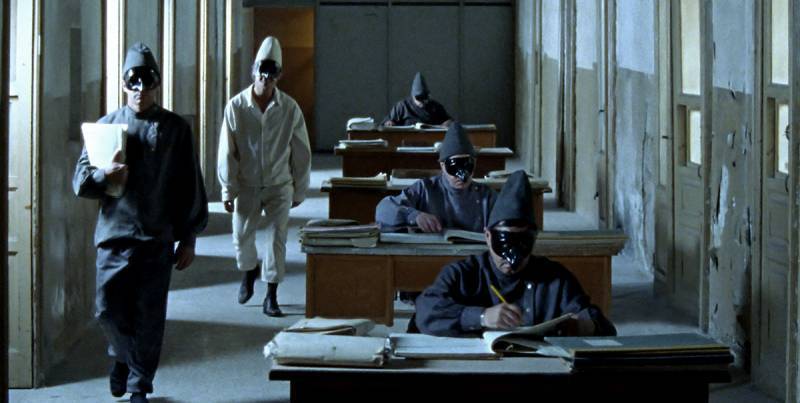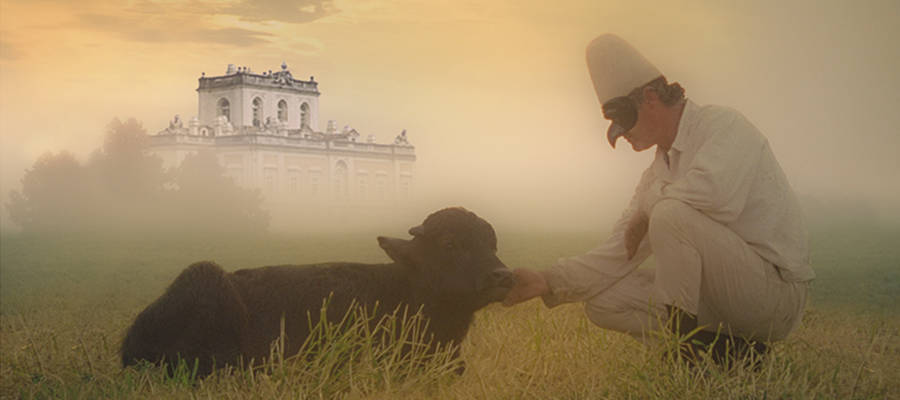Lost and Beautiful: Marcello's Political Cine-Poetry
The 45th edition of the Film Society of Lincoln Center and The Museum of Modern Art's festival New Directors/New Films is about to start: March 16 – March 27. Since 1972, New Directors/New Films has been an annual appointment of early spring in New York City, bringing exciting cinematic discoveries from around the world to international moviegoers. Dedicated to the discovery of new works by emerging and innovative filmmaking talent, this year’s edition includes 27 features and 10 shorts.
Among films from several countries, including Ghana, China, Israel, Denmark and the USA, there is one Italian gem awaiting to be discovered by American audiences: Lost and Beautiful (Bella e perduta) by Pietro Marcello. In this Award winning film, Marcello has fused documentary and fantastical fiction to tell the story of the so called “Angel of Carditello," or rather, Tommaso Cestrone, a real-life shepherd from Campania who represents hope and generosity in a country plagued by corruption.
“Shot on expired 16mm film stock and freely incorporating archival footage and folkloric tropes, it begins as a portrait of the shepherd Tommaso, a local hero in the Campania region of southern Italy, who volunteered to look after the abandoned Bourbon palace of Carditello despite the state’s apathy and threats from the Mafia. Tommaso suffers a fatal heart attack in the course of shooting, and Marcello’s bold and generous response is to grant his subject’s dying wish: for a Pulcinella straight out of the commedia dell’arte to appear on the scene and rescue a buffalo calf from the palace.”
The two, Pulcinella and Sarchiapone (the buffalo), embark on a journey through Italy and witness first hand its corruption, its difficulties and slow degeneration in a time of austerity. The palace of Carditello therefore becomes a lost microcosm where beauty still reigns.
“Carditello is the symbol of a lost beauty and the struggle of an individual, an orphan who refuses to surrender to a rotten mechanism of destruction and decay,” Marcello has said about his film, “And at the same time this story, deeply rooted in our country’s history, examines a subject which has never been so universal: the relationship between man and nature.”
“I learnt to look at Italy contemplating its landscape from trains, rediscovering time after time its beauty and its ruin,” Marcello further explained, “I have often thought about making an itinerant film that would cross the provinces to describe Italy: beautiful, yes, but lost. Leopardi described it as a woman crying with her head in her hands due to the burden of history, the atavistic evil of being too beautiful.”
Lost and Beautiful, which owes its title to Verdi's Nabucco and refers to the country ("Oh my country, so lovely and so lost") is a unique piece of art along the borderline of fiction and documentary, which is typical of Marcello. The film looks and feels like it comes from another era, and Marcello has often been compared to Pasolini for “its matter-of-fact lyricism and political conviction.”
Marcello, who comes from Caserta, studied painting at l’Accademia di Belle Arti, was first a teacher in the prison of Naples and then started making short documentaries in 2003 . In 2007 he shot the documentary Il Passaggio della Linea (Crossing the Line) which was presented at the Venice International Film Festival and introduced him on the international scene. In 2009, Marcello made La Bocca del Lupo (The Mouth of the Wolf), winner of major prizes at the Berlin and Turin film festivals. The film masterfully combines documentary with fiction in the telling of two haunting love stories that focus on the marginalized and Genoa's fading glory.
Lost and Beautiful is also a documentary with elements of fiction that soars into the realm of myth to create political cine-poetry.
Screenings on Wednesday, March 23 @ 9:00 PM & Thursday, March 24 26:30 PM



































i-Italy
Facebook
Google+
This work may not be reproduced, in whole or in part, without prior written permission.
Questo lavoro non può essere riprodotto, in tutto o in parte, senza permesso scritto.